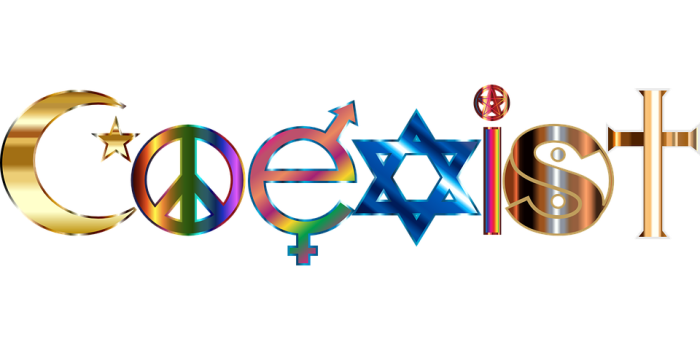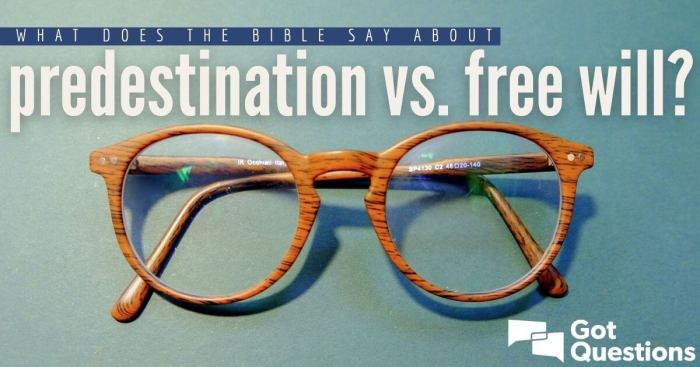Can predestination and free will coexist? This enduring philosophical question has sparked debates throughout history, captivating theologians, philosophers, and scholars alike. Predestination suggests that our lives are predetermined by a higher power, while free will implies that we possess the autonomy to make our own choices.
This exploration delves into the intricate relationship between these two concepts, examining arguments for and against their coexistence and exploring the profound implications for human agency and responsibility.
Throughout this inquiry, we will navigate the complexities of these concepts, examining their philosophical and theological underpinnings. We will explore how different religious traditions reconcile the tension between predestination and free will, shedding light on the ways in which these beliefs shape our understanding of human nature and our place in the universe.
1. Defining Predestination and Free Will

Predestination is the concept that all events are predetermined by a higher power, such as God or fate, and that human beings have no control over their actions or destiny. Free will, on the other hand, is the belief that individuals have the ability to make choices and control their own lives.
These two concepts seem to be in direct conflict with each other, as predestination implies a lack of free will and free will implies a lack of predestination.
Arguments for Coexistence
Despite the apparent contradiction, some philosophers and theologians have argued that predestination and free will can coexist. One argument is that predestination can coexist with the illusion of free will. This means that while our actions may be predetermined, we experience the illusion of making choices and controlling our own lives.
Another argument is that there are some events that are predetermined, such as our birth and death, while other events are left to our own free will, such as our career and relationships.
Arguments against Coexistence
Other philosophers and theologians have argued that predestination and free will cannot coexist. They argue that if our actions are predetermined, then we cannot be held responsible for them. This would undermine the entire concept of morality, as we would not be able to be punished for our wrongdoings or rewarded for our good deeds.
Additionally, they argue that the concept of free will is essential to human agency, as it gives us the ability to make choices and shape our own lives.
Philosophical and Theological Perspectives
The debate over predestination and free will has been going on for centuries, and there is no easy answer. Different philosophical and theological perspectives have different views on the relationship between these two concepts. Some religions, such as Christianity, believe that God has predetermined everything that will happen, while other religions, such as Buddhism, believe that we have the power to shape our own destiny.
Implications for Human Agency and Responsibility, Can predestination and free will coexist
The debate over predestination and free will has implications for our understanding of human agency and responsibility. If our actions are predetermined, then it could be argued that we are not responsible for them. However, if we have free will, then we are responsible for our choices and the consequences of our actions.
This has implications for our moral choices, as well as our understanding of justice and punishment.
FAQ Compilation: Can Predestination And Free Will Coexist
Is predestination compatible with human freedom?
The compatibility of predestination and human freedom is a subject of ongoing debate. Some argue that predestination negates free will, while others maintain that the illusion of free will can coexist with predetermined outcomes.
How do different religions reconcile predestination and free will?
Different religious traditions have developed varying perspectives on the relationship between predestination and free will. Some religions emphasize the sovereignty of God and the predetermined nature of events, while others place greater emphasis on human agency and the power of choice.
What are the implications of predestination for our moral choices?
The concept of predestination raises questions about the nature of moral responsibility. If our actions are predetermined, to what extent are we accountable for our choices? This question has profound implications for our understanding of ethics and the justice system.

